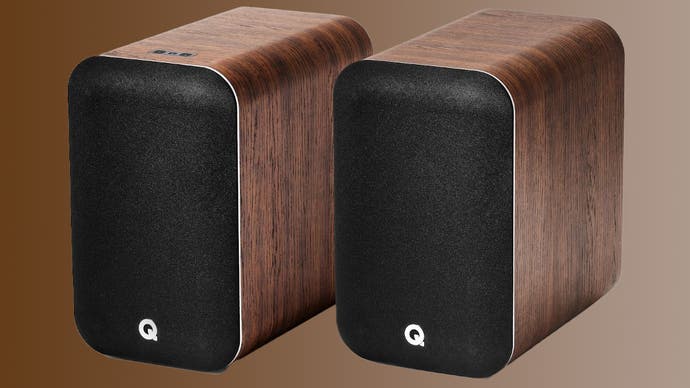Q Acoustics M20 HD review: unnaturally flexible bookshelf speakers
Rich sound and excellent connectivity, no app required.
As you'll have seen from some of my recent reviews here, I'm beginning to get into the world of audio in a bigger way than I had been. Of course, headphones are just one part of it, and speakers are another. Here to take a look at today I've got a set of the Q Acoustics M20 HD, a set of £389/$499 bookshelf speakers that are, quite simply, excellent - thanks to top-tier audio for their price category, great connectivity options and a stripped-down feature set that does everything you need without an app to complicate things.
Out of the box, the Q Acoustics M20 HD provide a solid first impression with more classic stylings than most computer speakers we see, with nicely rounded cabinets and minimal controls - just power, volume up and volume down on one speaker. There's also a small LED indicator that glows all manner of different colours depending on what source is being used, be it Bluetooth, optical, analogue or USB. Most of the other useful controls are found on the solid remote supplied with the speakers, which controls media playback, volume, as well as changing audio sources - and there are a lot of audio sources.
The M20 HD is a system that you can virtually put anywhere in your home - as long as you can run speaker wire between the two units - and feed all manner of inputs into. Think of it as an audio base station of sorts, especially with the vast amount of ports found on the back of the right hand speaker. Everything from optical to aux, USB-B and RCA line-level are included, as well as a subwoofer output if you want to add a bit more low end to proceedings. For wireless fans, support for aptX HD Bluetooth is also handy for streaming hi-res audio from compatible devices.
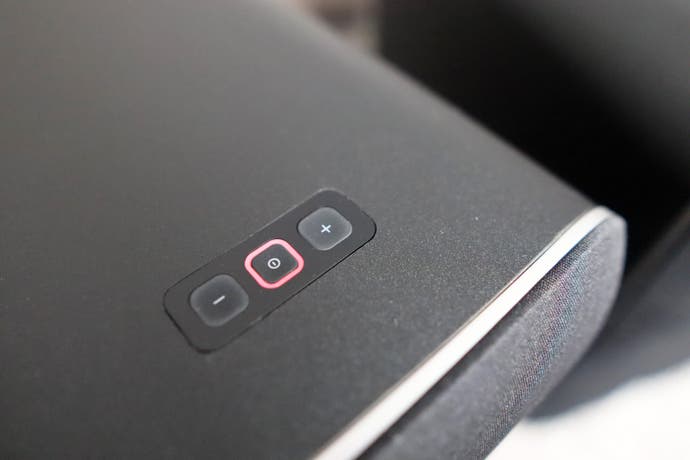
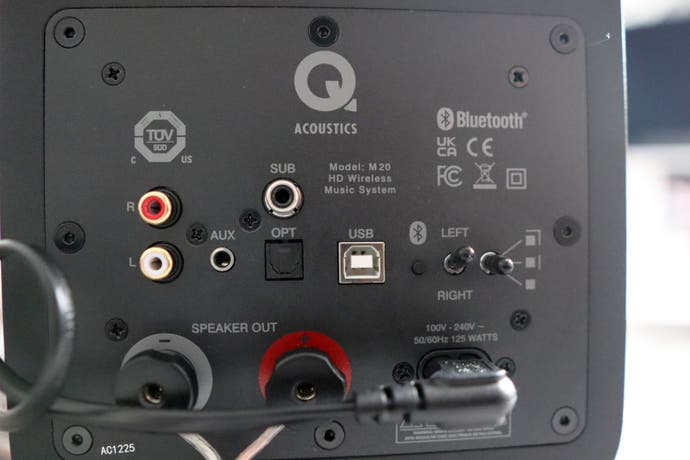
This vast array of connectivity simply makes the M20 HD an all-conquering wired or wireless music system that can connect to everything from phones and PCs or be integrated into a more sophisticated hi-fi system with dedicated streamers or CD players with the RCA line-level port. There's even a switch on the powered speaker that allows it to toggled between outputting the left or right channel - handy if your power and audio sources are just available in one of your two speaker locations.
And now for the most important bit - sound. In short, the M20 HDs sound fantastic. They offer a rich, full-bodied sound with some truly marvellous clarity across all manner of music and sources. A listen to Jimmy Buffett's Cultural Infidel revealed especially crisp and precise percussion, while a move over to Phil Collins' raucous Wear My Hat presented plenty of punch. You may also wish to characterise the presentation of the M20 HD as being a little 'sparkly', given they handle the top-end rather well, offering a sense of refinement on percussion driven tracks such as Steely Dan's Do It Again, an audiophile's favourite.
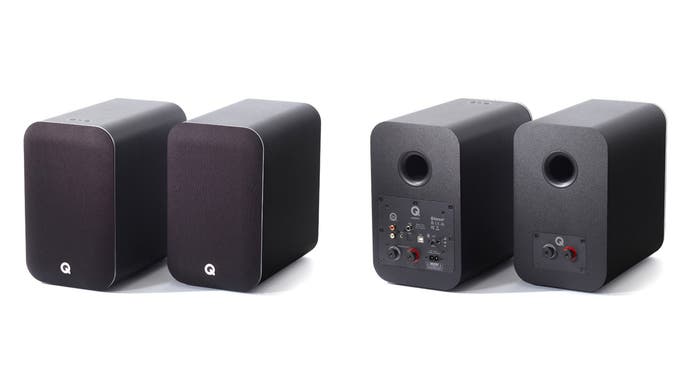
With this in mind, it would be easy to assume that the M20 HD lack a punch in terms of their low-end. This simply isn't the case, though. They don't have an overly aggressive thumb like units I've tested with dedicated subwoofers, such as the SteelSeries Arena 7, but the M20 HD speakers handle well without one, with good extension experienced on Rush's YYZ. It's a song that's notoriously busy in terms of its competing bass, guitar, and drums, and the M20 HD dealt with it especially well, with plenty of low-end rumble.
Their mid-range presentation is smooth and sumptuous and makes listening a real pleasure. A dedicated session listening to James Taylor's Hourglass album presented this rather well, with tracks such as Line 'Em Up and Jump Up Behind Me sounding wonderfully smooth and refined. It's a gorgeous sound with plenty of depth, that's for sure.
With every song I've tested, and in games such as my usual candidates of CS:GO and Forza Horizon 5, what comes across especially well is the soundstage afforded by the M20 HD. Of course, as separate speakers rather than headphones or a sound bar, it's perhaps to be expected that the soundstage they offer is immense, but it's the scale of separation offered in the units that comes across well. A listen to Peter Gabriel's new single Road To Joy portrayed this especially well, with his voice coming across in the central channel, while the song's synth and percussion came across on one side, and David Rhodes' funky guitar work on the other. It's a real pleasure as to how smoothly the M20 HD represents even some rather complicated soundscapes.
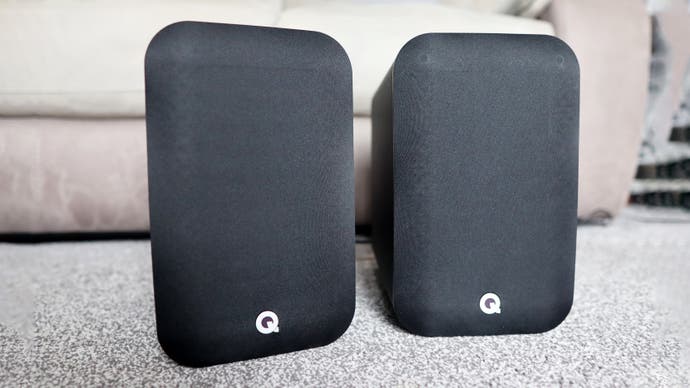
My only criticism of the M20HDs is their size, as they are a fair bit bigger than more typical bookshelf speakers at 296x279x170mm. To fit them in, you will need a particularly large bookshelf, or a deep desk. I just about have enough space to put them on my TV stand, and that's where they'll be staying for the foreseeable future, but I couldn't fit then on my desk, unfortunately. If you do want to fit these in, you'll just have to make sure you've got the space. And if you want something with similar options but smaller, consider the Ruark Audio MR1 MK2 speakers we also recommend.
Thankfully, you can at least tune the speaker's tonal balance based on whether they're free-standing, against a wall or in a corner, using a switch on the back of the primary speaker - clever stuff. There are also foam bungs provided in case you're using them against a wall and want to diminish their bass output.
In the grand scheme of things, £389/$499 isn't actually that much for a set of bookshelf speakers as capable as these. They may be a little big for some rooms and spaces, but otherwise, they offer a gorgeous, rich, and refined sound to them with a great sense of timing and space that makes them a versatile choice for all range of genres of music and games alike. They also offer a great range of inputs, wired and wireless. If you are on the hunt for a set of capable and affordable wireless speakers for your living room, office, or indeed anywhere else in your home, these Q Acoustics M20 HDs are a fabulous set of DF-recommended speakers for the money.
